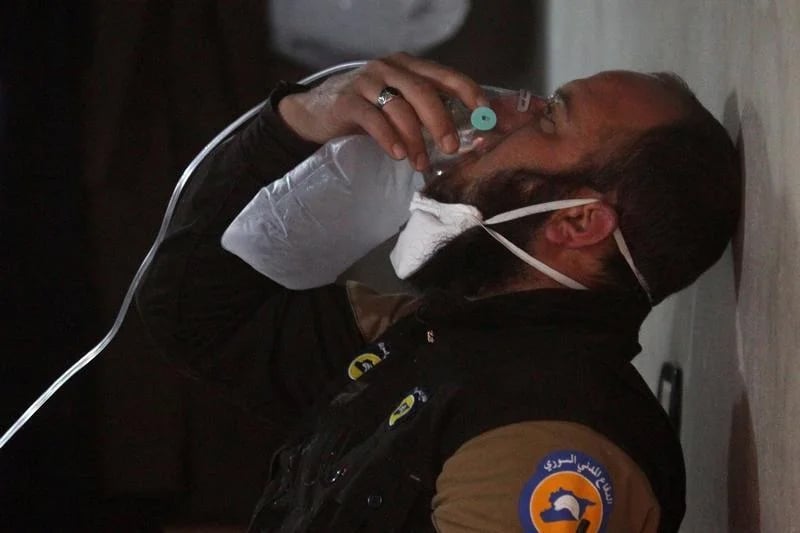States Should Vote for Funding New OPCW Team

A civil defense member breathes through an oxygen mask, after what rescue workers described as a suspected chemical attack in the town of Khan Sheikhoun in rebel-held Idlib, Syria April 4, 2017. © 2017 Reuters
Languages
Available In
Louis Charbonneau
United Nations Director at Human Rights Watch
Governments supporting an effort to identify those responsible for deadly chemical attacks in Syria need to back their commitment to justice with cash. They will get the chance this week when member states of an international treaty banning chemical weapons vote on the 2019 budget for the Organisation for the Prohibition of Chemical Weapons (OPCW).
In June, parties to the Chemical Weapons Convention agreed to establish a team to determine responsibility for the chemical attacks in Syria, where the government and some armed groups have repeatedly used toxic agents as weapons. The vote to set up the team came despite fierce resistance from Russia, Syria’s staunchest ally, and after Russia vetoed an effort by the United Nations Security Council to hold accountable those responsible for attacks killing hundreds. There have been at least 85 confirmed chemical weapons attacks since August 2013, at least 50 by the Syrian government, according to Human Rights Watch and six other sources.
Russia has continued to lobby against OPCW efforts to get the team up and running. On Monday a Russian diplomat said the effort was based on “out and out lies” spread by Western governments seeking an excuse for “raining down missiles” on Syria.
The OPCW’s budget for 2019 would earmark a modest €2 millions (approximately US$2.3 millions) for the Syria team, which the OPCW hopes will report in 2019 on responsibility for at least three previous attacks and in 2020 on five more.
After the Security Council created the UN-OPCW Joint Investigative Mechanism (JIM) in 2015 to determine responsibility for chemical attacks in Syria, the JIM’s investigators accused both the Syrian government and the Islamic State (also known as ISIS) of repeatedly using chemical weapons in the conflict. After the JIM confirmed that the government was responsible for an April 2017 nerve agent attack in Khan Sheikhoun that killed dozens, Russia used its Security Council veto to put an end to those investigations. In November 2017, the JIM was disbanded. Russian state media and its online enablers filled the vacuum by spreading conspiracy theories and sowing confusion.
There’s no veto in The Hague. But members of the Chemical Weapons Convention need to show up and vote for the OPCW draft budget to ensure the attribution team has the resources to get to work. Those who deploy chemical weapons in Syria should be unmasked. It will be a first step towards justice for many of Syria’s countless victims.
The original article was published on the Human Rights Watch website


